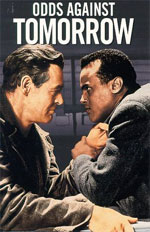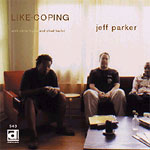Chicago Gamelan
| |

|
Something Alistair mentioned
recently, in Transitory Snapshots, about letting the metaphors go wild, evoking
the most excessive filigree synapses, hit the mark with me. There's genius in painting ´Stained Glass Windows in the Sky', taking a Polaroid of ´Sunlight Bathed the Golden Glow'. Or the opposite equally holds true. One day I'll write the perfect one-line review. Thinking of the new Subway Sect record, which I haven't dared to listen to yet, one thumbs-up formula would be 'The Tony Hatch Orchestra plays ´Suicide is Painless''. Vic knows what I mean. But I still can't
bring myself to buy the thing. The music in my dreams is often more enigmatic, more unreachable, than the real thing. For some strange reason I dreamt of The Wild Swans playing ´Revolutionary Spirit' unmentionably loud last night, over images showing Kenny Dalglish scoring one of his great 1970's goals. I then woke with some plaintive Pale Fountains trumpet lament in my head. Don't ask me why. It all reminds me of my most cherished jazz moments. Bring me the Modern Jazz Quartet, in film soundtrack mode. Odds Against Tomorrow has so many moments of aching poetic reverie, amid the neurotic charge of underground city life. ´Skating in Central Park', with Bill Evans and Jim Hall filling in the shades of noir. I can turn to it over and over again. Their other great soundtrack sits on the same exalted level. No Sun in Venice, made for an obscure French production by Roger Vadim, easily merits legendary status, even if the film is forgotten. It's as powerful a mix of traditional Baroque and vibrant Modernity as the Art of Ensemble of Chicago managed in Les Stances a Sophie. Monteverdi's Venetian Vespers, chiming with the most crystalline black and white Cinemascope images. The folks at Soul Jazz ought to sit up and listen. No Sun in Venice, Lawrence would be happy with that. In an act of wilful digression, I mention all this because I've been listening hard to Jeff Parker's new release for Delmark recently. Delmark, the doyen of in your face jazz, turn to a more pastoral offering here. Far from the angry hills of Braxton, Muhal Richard Abrams and the AACM in full hollering and whooping charge, the record suggests a new fascination with listening until it hurts. It's as if playing loud is so much extra flesh on bones that rhyme by themselves. Jazzy Jeff, a veteran of the Chicago scene, has plenty more muscle than he lets on. Having been a lynch pin of the Tortoise, Isotope 217 and Chicago Underground collectives, he knows how to create beguiling lines on a small scale. The tangle of new compositions on offer here has plenty of secrets to unravel and to illuminate the educated ear over time. On one of the later tracks, ´Pinecone', the group set about a Jim Hall style dazzle fully in keeping with Parker's jazz guitar credentials. It reminds me of those deft runs Hall excels in, especially on his early records for Pacific in the 50's, with splashes of colour added to the barest of frameworks. |

|
Parker does the same on Like-Coping, a record with
a title to put you off, then come back to it once the whimsicality has worn
off. The title is a state
of mind for Parker, how else to sum up a will to survive amid US foreign
policy today. In his own way, Parker's liner notes make as strong a statement
as Mark E. Smith hijacking a double decker bus in central London, and ranting ´US
80's/90's' through a heavily amplified megaphone to his unsuspecting audience. Insouciant and kaleidoscopic, the album runs the gamut of Chicago styled counterpoint in a minimalist setting. Joined by the sure hands of Chris Lopes (at first sight, I thought it was a statement- Chris lopes, as opposed to swaggers, much like the music on this record) on bass and flute, and Chad Taylor's drums, guitar and vibes, the instrumentation is sparse but beautifully defined. The album's first track plays like a lullabye, setting the scene for a record which caresses and cajoles by turn, in the name of freeing jazz from the elite and pop from the classic 3 minute song format. ´Miriam' is a beautiful tune of tranquil serenity, an ode to Chad Taylor's new wife inspired by the great Elmo Hope. It's telling that John McEntire's production doesn't overdo effects, but aims for a natural living room sound in keeping with the intimate recordings of their heroes. So much of the vitality of Elmo Hope's late recordings comes from their sounding like his piano is right in your front room. Hope against Hope, indeed. The standout track for me, ´Plain Song', is a lithe fancy which whispers sweet nothings in your ear before hiving off in a smoky bar to lay its hooks elsewhere. It comes and goes, courtesy of Parker's softly strummed guitar chimes, with a theme of aching loveliness. I could swear he quotes from David Raksin's theme for the 1940's film noir Laura towards the end, which is about as classy a tune to steal from as any. And Gene Tierney as Laura always had her way of staying engagingly cool, and making any man choke on her memory. It's a suspended teardrop of shimmering song, that sounds as if it could have been penned by George Shearing at his silky best, or John Lewis in Harlequin Modern Jazz Quartet black tie. Chicago Gamelan, I call it. Like-Dolphy, the group raid Oriental influences to add to jazz improvisation. The mood is of the moment, an idle moment where incense burns from the pagoda and a trio of like-minded musical monks breathe life into an ancient formula. |